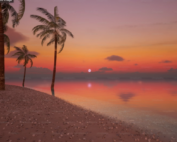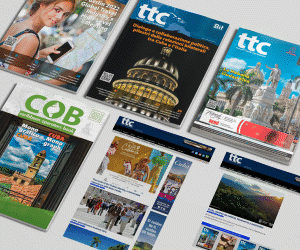Rediscover us: Why the future of Caribbean Tourism is Caribbean people

“The Caribbean is not just a destination—it’s a mirror. In rediscovering its shores, we rediscover ourselves: our resilience, our rhythm, and the roots we forgot we had.”
When was the last time you truly explored the Caribbean—not as a tourist, not as a bystander, but as a regional citizen reclaiming what is rightfully yours?
We have spent decades looking outward. For too long, we’ve been conditioned to see the world beyond our shores as the only place worthy of our attention, our ambition, and our vacation dollars. Miami became familiar. London, aspirational. Toronto, comforting. Meanwhile, the islands around us—the ones sharing our history, our bloodlines, and our struggles—have become foreign.
Now, with tightening visa restrictions, entry denials, and deportation threats looming, the message from the Global North is increasingly clear: we are not as welcome as we once thought. What once seemed like opportunity is beginning to feel like rejection.
Yet rather than lament that shift, we should see it as a turning point—a moment to reevaluate what we value, where we travel, and who we support. The time has come for a regional awakening. Not just to salvage tourism, but to strengthen the ties that bind us.
The Caribbean must become our first choice, not our last resort.
Imagine regional travel not as a backup plan, but as a cultural pilgrimage. A Windward Islands trail from the cocoa estates of Grenada to the volcanic peaks of St Vincent and the lush valleys of St Lucia. A Carnival Highway that connects Antigua, St Kitts, and Trinidad—where your passport is your rhythm and your visa is your vibe. A wellness route with spa baths in Dominica, bush medicine in St Lucia, and sea moss tonics in St Kitts.
And between it all: the food. Goat water in Montserrat. Oil down in Grenada. Pepperpot in Guyana. Jerk in Jamaica. Roti in Trinidad. Ducuna in Antigua. Every bite tells a story of resistance and survival, of migration and memory. These are not just meals—they are edible monuments to our shared identity.
However, none of this will happen unless we build the infrastructure—and the mindset—to make it possible.
Right now, it often costs more to fly from one island to another than it does to fly to the United States. That is not just economically irrational—it is culturally corrosive.
We need CARICOM-backed flight subsidies to make inter-island travel affordable. We need a regional travel pass that spares our citizens the indignity of being treated as foreigners in neighbouring states. We need national hotels and guesthouses to offer local rates for regional visitors and we need one regional booking platform that treats Caribbean citizens with the same courtesy given to foreign tourists.
These are not impossible demands. They are long-overdue steps toward building a tourism model that serves us, not just others.
We, the people, must lead the way because this is not just about economics—it’s about sovereignty. Every EC dollar we spend in another Caribbean country stays in the family. Every trip we take to a sister island is a vote for regional unity. Every time we choose us, we grow stronger.
We are not a collection of small islands. We are a community of proud nations and it’s time we start acting like it.
So this year, instead of booking a flight to Florida or London, book one to St Lucia. Take a ferry to Montserrat. Watch a cricket match in Barbados. Walk the beaches of Tobago. Dance in the streets of Port of Spain and in doing so, rediscover not only the beauty of the region—but the beauty of belonging to it.
For if we don’t start visiting each other, we will become strangers and when that happens, we may find that the bonds we thought were unbreakable have quietly dissolved.
Let’s not wait for another crisis to remind us of who we are.
Let’s rediscover the Caribbean—before we forget each other completely.
I’m Algernon Watts and this – this is not just a message. It’s your invitation to remember who we are. To rediscover us.
Source: Antigua Observer

MORE NEWS














